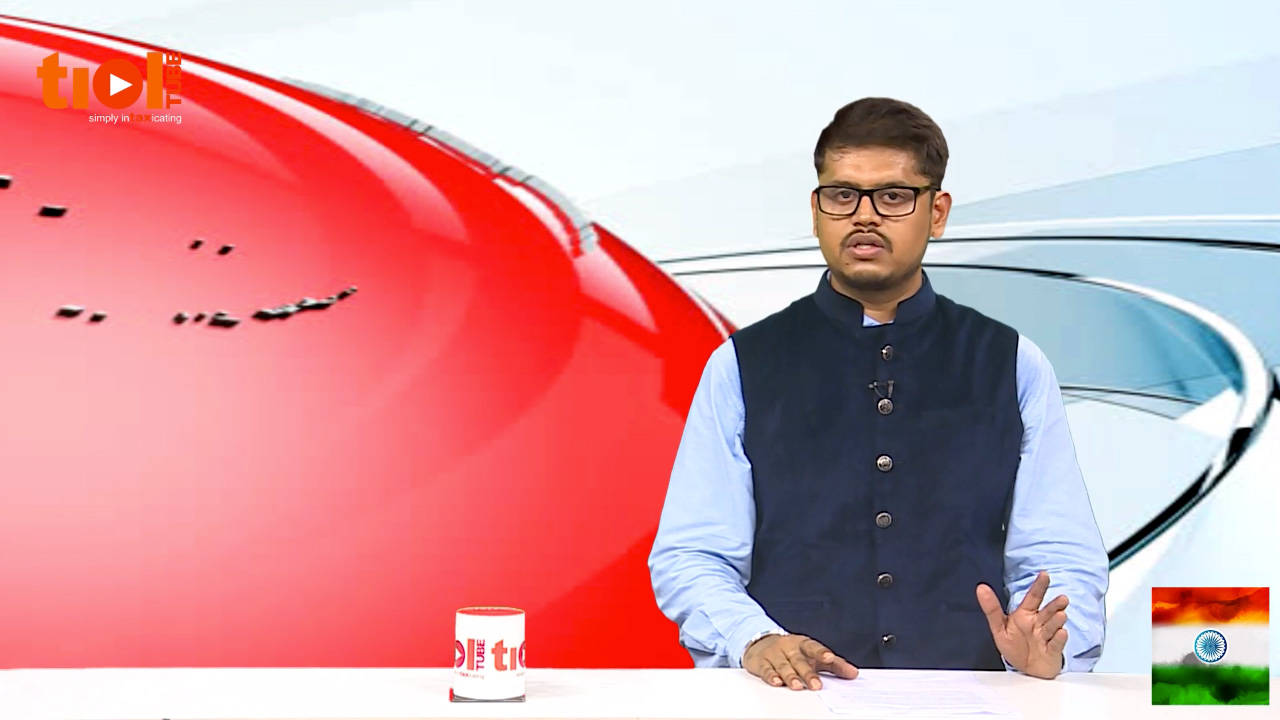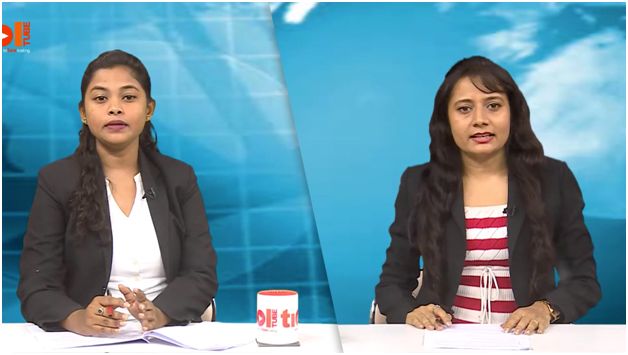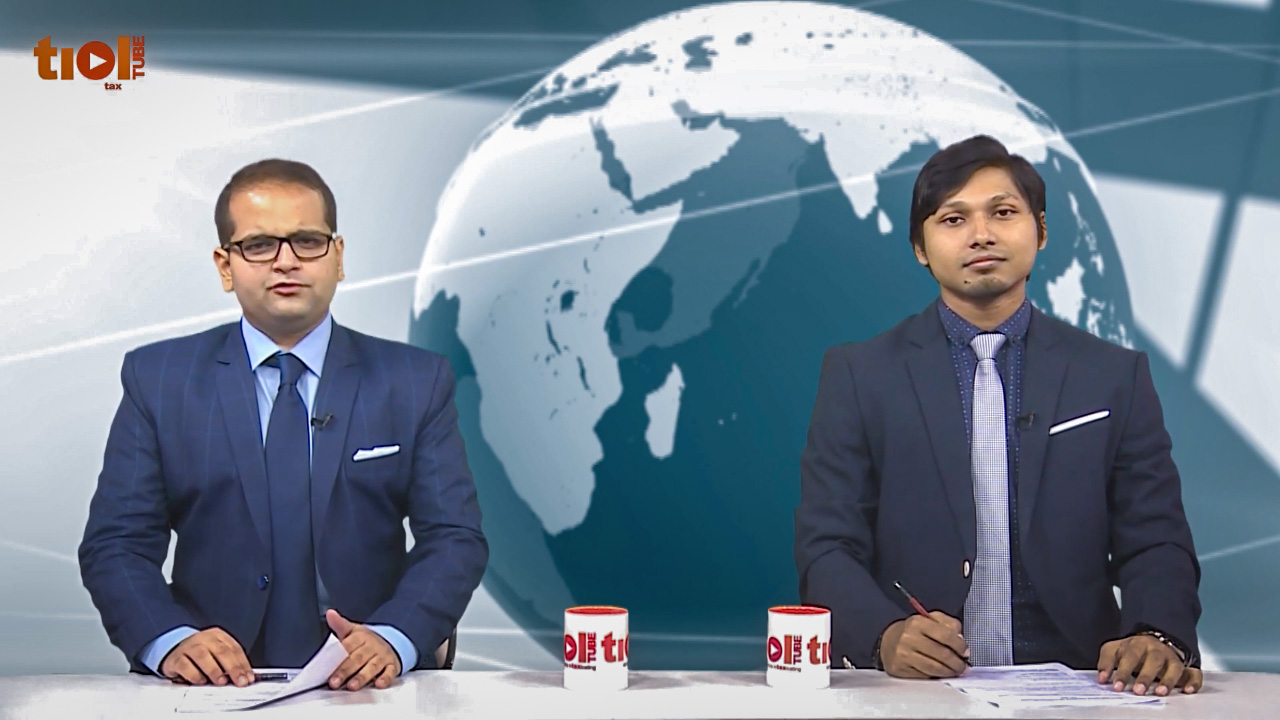|
SERVICE TAX
2019-TIOL-1867-HC-MP-ST
West Central Railway Vs GST, C & CE
ST - The petitioner is engaged in providing taxable service in tangible goods and collecting taxable amount in respect of Renting the immoveables for business and supplying the tangible goods to persons as per Section 65 of Chapter V of FA, 1994 on which service tax has been imposed - The petitioner despite notices failed to comply with Section 67 of FA, 1994, therefore, the authority assessed the tax and raised demand for payment together with interest and penalty - The Appellate authority summarily dismissed the appeal on two counts, firstly, on the point of delay and secondly, on the point of non-deposit of necessary pre-requisite amount as is required under the Act of 1994 - Both defaults went to the root of the matter - Consequently, the respondents were fully justified in dismissing the appeal on both counts - No infirmity or illegality found with the impugned orders which are in consonance with the statutory requirements: HC
- Writ petition dismissed : MADHYA PRADESH HIGH COURT
2019-TIOL-2361-CESTAT-MAD
Haresh Kishor Vs CGST & CE
ST - Renting of Immovable Property Services - During Internal Audit, it was noticed that appellant had not discharged ST on the entire income of rent - SCN issued - demand confirmed along with interest, penalties imposed - on appeal, Commissioner (Appeals) modified the impugned order, upholding the demand of Rs.2.91 lakh and setting aside the penalties in respect of ST paid before 28.5.2012 and sustained the penalty in relation to the ST of Rs. 52,932/- which remained unpaid by them- appeal to CESTAT.
HELD: Being an interpretational issue and also taking into consideration the fact that the appellants have discharged a substantial portion of the ST liability, this is a fit case to invoke section 80 of the Finance Act, 1994 - therefore, the penalties imposed are set aside entirely - the impugned order is modified to the extent of setting aside the penalties imposed and also remanding the matter to the adjudicating authority for the limited purpose of re-quantification of ST demand after looking into the aspect whether the appellant has discharged the amount of Rs. 52,932/- towards the said liability - the appeal is partly allowed and partly remanded in above terms : CESTAT [para 5.2, 6, 7]
- Appeal partly allowed/partly remanded: CHENNAI CESTAT
2019-TIOL-2360-CESTAT-MAD
Pr. CGST & CE Vs Bharat Sanchar Nigam Ltd
ST - Delay of four days in filing the appeal, being nominal, is condoned - Misc. Application for condonation of delay filed by the Department is allowed: CESTAT [para 2]
- Application allowed: CHENNAI CESTAT
2019-TIOL-2359-CESTAT-KOL
AK Ghosh And Company Vs CCE & ST
ST - Application filed for restoration of appeal which was dismissed for non-prosecution - appeal restored - Appellant had filed appeal before the Lower Appellate Authority [LAA] almost after expiry of six months, hence appeal was rejected as time barred - appeal to CESTAT.
HELD - In view of the judgment of the Apex Court in the case of Singh Enterprises [ 2007-TIOL-231-SC-CX ],wherein it was held that the Tribunal cannot condone the delay, beyond the condonable period, in filing the appeal before the LAA, the appeal is dismissed : CESTAT [para 5, 6]
- Appeal dismissed: KOLKATA CESTAT
CENTRAL EXCISE
2019-TIOL-1868-HC-AHM-CX
Chiripal Industries Ltd Vs UoI
CX - The petitioner is engaged in business of manufacturing Partially Oriented Yarns (POY), Fully Drawn Yarns (FDY) and texturized Yarns - POY and FDY produced in petitioner's factory are used within the factory as captive consumption for manufacture of texturized yarn, which are removed from the factory on payment of appropriate excise duty - A separate SCN was issued for the period from October 2007 to February 2008 on the ground that National Calamity Contingent Duty (NCCD) was not exempted on captively consumed yarns - T he ratio of decision Supreme Court in case of Bajaj Auto Limited 2019-TIOL-127-SC-CX , when stated to govern the case and the petition was filed prior to the judgment rendered by Supreme Court and considering the contentions raised in the petition, Court do not propose to relegate the petitioner to avail alternative remedy, as suggested by respondent - The ratio of said judgment is not in dispute and would squarely govern the case - The impugned order is quashed and set aside: HC
- Petition allowed : GUJARAT HIGH COURT 2019-TIOL-1860-HC-MUM-CX Hindustan Composites Ltd Vs Assistant Commissioner CGST & CE
CX - The petitioner challenges the impugned order which rejects the petitioner's claim for refund on grounds of unjust enrichment - This, according to the petitioner, is contrary to, and in defiance of, binding decisions of the Tribunal, particularly, the order dated 27 October 2017, passed by Tribunal - The above order directed the adjudicating authority to await the outcome of Revenue's appeal against the order dated 21st January 2014 of the Tribunal before the High Court- The petitioner's grievance in the present facts is justified - The impugned order is quashed and set aside: HC
- Petition disposed of: BOMBAY HIGH COURT
2019-TIOL-1859-HC-MP-CX
CCGST & CE Vs Man Trucks India Pvt Ltd
CX - The respondent is engaged in manufacturing of Heavy Commercial Vehicles and Chassis of Vehicles - During disputed period, the respondent had cleared 86 Nos. of vehicles to EPCG licence holder, on the basis of invalidation letters issued in terms of FTP 2009-14 - As per FTP, certificate from EPCG authorisation holder and evidencing receipt of capital goods were also submitted to the excise authorities - The clearance of vehicles under FTP without payment of duty was objected to by Department on the ground that the supplies were not effected against International Competitive Bidding (ICB) - The respondent ought to have first discharged the Terminal Excise Duty (TED) and should have claimed the refund - The department also pointed out the mistake and the respondent deposited the duty liability along with interest and thereafter, the department issued a notice seeking recovery of central excise duty along with interest for imposition of penalty - There was no element of fraud and suppression with an intent to evade payment of duty - The department was informed by assessee about duty and clearance also along with reasons - The Tribunal has gone to the extent in holding that the department was also having knowledge about the error and in those circumstances, the Tribunal has allowed the appeal preferred by the assessee - It has been stated that the amount of duty which was payable as per the demand was deposited by company in question before issuance of SCN - In SCN, it was mentioned that the amount will be appropriated by the department and the appropriation was confirmed with the order in original - No substantial question of law arises in the matter, therefore, the admission is declined: HC
- Admission declined: MADHYA PRADESH HIGH COURT
2019-TIOL-2358-CESTAT-HYD
CCT Vs NSL Krishnaveni Sugars Ltd
CX - Respondent is a manufacturer of sugar and had, during the months of August, 2015 to April, 2016, availed Cenvat credit to the tune of Rs.37,31,046/- on the Clean Energy Cess (CEC) paid on the coal - On being pointed out by the departmental officers, they have reversed the same under protest - SCN issued for recovery of the credit availed and for appropriation of the amount paid along with imposition of penalty etc. - demand confirmed/appropriated and equal penalty imposed - in appeal, Commissioner (A) held that credit is available in view of High Court decision in the case of Shree Renuka Sugars = 2014-TIOL-98-HC-KAR-CX wherein Cenvat credit of the sugar cess was allowed holding that the sugar cess was also collected as a duty of excise and is therefore eligible for Cenvat credit under Rule 3 of CCR, 2004 - Revenue in appeal before CESTAT.
Held: A plain reading of Rule 3 of CCR, 2004 shows that it did not provide for Cenvat credit of every duty of excise and cess but only of some and this list does not include CEC imposed in Finance Act, 2010 - It is, however, now held by the Constitutional bench of Apex Court in the case of Dilip Kumar & Co. and others (Civil Appeal No. 3327/2007) = 2018-TIOL-302-SC-CUS-CB that fiscal statutes must be interpreted strictly as per the letter of word and not the spirit of the law, ignoring any amount of hardship and eschewing any equity in taxation - From a plain reading of Rule 3 of CCR, 2004, Bench does not find any ambiguity - If the intention was to allow credit of all forms of duties of excise and cesses, the Rule would have said so - Instead, it only listed some forms of duties of excise, additional duties of customs and cesses on which credit will be admissible and Clean Energy Cess (CEC) is not one of them - It is evident from Section 83 of Finance Act, 2010 that CEC has been levied on coal to discourage use of the polluting forms of energy and encourage use of cleaner forms of energy - This is based on the principle of 'Polluter pays' - If the CEC collected by the Government is returned to the assessee through the backdoor in the form of CCR, 2004, we will be doing a great disservice to the country by replacing the principle of 'Polluter pays' with 'Pollution pays' - We will be encouraging use of polluting forms of energy by undoing the very purpose for which CEC has been levied - it is evident that this Tribunal can also examine the vires of the Act and Rules with the condition that the Statute under which this Tribunal was created (Customs Act, 1962) cannot be questioned by this Tribunal - Further, the power of this Tribunal to decide on the vires of the Act or Rules is subject to scrutiny by Division Bench of the High Courts - Scope of Tribunal may extend to testing the vires of rules, regulations etc., but certainly does not extend to making the rules or modifying them - In the absence of any explicit provision to give Cenvat credit of Clean Energy Cess (CEC) under Rule 3 of CCR, 2004, it is not for this Tribunal to enlarge its scope - assessee is not entitled to Cenvat credit of CEC under Rule 3 of CCR, 2004: CESTAT [para 12, 13, 15, 18, 19, 20]
CX - CENVAT - Penalty - Dispute is an interpretational one and it is perfectly possible for the assessee to have entertained a belief that they are entitled to Cenvat credit of CEC and, therefore, there is no justification for imposition of penalty under Rule 15 of CCR, 2004 - Further, assessee appellant, on being pointed out, reversed the credit availed by them under protest, therefore, the penalty is liable to be set aside: CESTAT [para 21]
- Appeal disposed of: HYDERABAD CESTAT
CUSTOMS
2019-TIOL-2368-CESTAT-BANG
SR Kapoor and Sons Vs CC
Cus - Appellant imported Galvanised Iron (GI) wires and the same were self-assessed under declared Customs Tariff Heading 7217 2020 - on the ground that the importer had not produced the BIS certificate, it was held that the import appeared to be in violation of the Foreign Trade Policy and thus rendering the goods liable for confiscation under the Customs Act, 1962 - adjudicating authority confiscated the goods and imposed penalty of Rs.1,50,000/- on the goods imported u/s 112(a) of the Act, 1962 - appeal filed was also rejected by Commissioner (A), hence appeal before CESTAT - Appellant submitted that earlier they were compelled to file a Writ Petition for clearance of remaining goods which did not require BIS certificate since the goods were imported in two cartons, one of which items allegedly required (as per department) BIS certificate and inspite of specific directions from the High Court, the respondent had failed to conclude the proceedings within the time frame stipulated by the High Court - consequently, they were forced to initiate contempt proceedings and to cover up the lapse, the impugned order was passed and the goods were confiscated and penalty was imposed; that SCN was issued without furnishing copies of relied upon documents; that the impugned order was passed without providing even one day time for submitting reply to the SCN before personal hearing and hence the adjudication proceedings violated the principles of natural justice and resulted in arbitrariness; that the SCN was handed over to the Customs broker of the appellant at 5 p.m and they were directed to make reply to the SCN and appear for personal hearing fixed at 10 to 12 am on very next day i.e 29/05/2019; that although they had sought copies of relied upon documents and cross examination of the examining officer, without considering the said request, but considering the appearance of the co-noticee in SCN as on behalf of the appellant, o-in-o was passed. Held: The entire procedure followed by the original authority appears to be in gross violation of the principles of natural justice - it is pertinent to note that the appellants have been importing the same goods for the last so many years and no objection was raised regarding the classification of the imported goods - the High Court had directed the respondent to pass order regarding classification within 3 weeks from 10/04/2019 but the original authority did not bother about the order passed and issued SCN only on 28/05/2019 when the appellant filed contempt proceedings and in order to save himself from the contempt proceedings, the original authority without following the principles of natural justice, passed the original order - on this ground alone the impugned order is liable to be set aside - further, appellant is covered by the transitional provisions as contained in the Foreign Trade Policy - in this case, the appellant made advance payment on 29/10/2018 and 13/11/2018 as evident from the documents produced on record and imported the goods prior to 18/12/2018 which is the date up to which the goods could be imported without insisting on BIS certificate - both the authorities have completely ignored the saving clause of the Transition Policy and mis-interpreted the exclusion clause in the transitional provisions as provided in the Foreign Trade Policy 2015-2020 - absolute confiscation was also not warranted under the law and even if for the sake of arguments it is presumed that the goods imported can only be imported on producing BIS certificate and the said goods were imported in breach of the regulations of the FTP Act, then also the goods are liable to confiscation but should have been allowed to be redeemed against payment of fine as per s.125 of the Act - Impugned order is totally illegal and has been passed arbitrarily without following the basic principles of natural justice and on merit also, the appellant is covered by the transition provision as covered under FTP - impugned order is, therefore, set aside and the original authority is directed to immediately release the goods on payment of appropriate duty - appeal allowed with consequential relief: CESTAT [para 6.1, 6.2, 7]
Cus - Imposition of fine on adjudicating authority - High-handedness of the adjudicating authority is writ large when he failed to conclude the proceedings within the time stipulated by the High Court - Heaven was not going to fall had the adjudicating authority given one week time to the appellant to file reply - conduct of the adjudicating authority from the very beginning appears to be totally biased and to harm the interest of the importer who appears to be a small time importer and the size of the imported consignments is also not very big - insensitive approach of the adjudicating authority is going to damage the policy of the Government of India relating to ease of doing business by small traders like the appellant - It appears that the adjudicating authority has deliberately violated the principles of natural justice to harm the interest of the appellant - adjudicating authority has no regards for the orders passed by the High Court - unfortunately, the first appellate authority has also not applied its judicial mind and routinely confirmed the order-in-original - Therefore, keeping in view the conduct of the adjudicating authority in this case from the very beginning, Bench is constrained to observe that the Order-in-Original was passed with malafide intention by violating the principles of natural justice - in the interest of justice, Bench imposes a fine of Rs.25,000/- on the adjudicating authority which shall be paid by him from his salary - said fine is to be paid within two months from the date of receipt of order in the Chief Minister's Distress Relief Fund, Kerala - Adjudicating authority is also advised to be careful in future while passing orders: CESTAT [para 8]
-Appeal allowed
: BANGALORE CESTAT
2019-TIOL-2357-CESTAT-MUM
East West Freight Carriers Ltd Vs CC
Cus - CHALR, 2004 - CHA licence - Inquiry Officer (IO) after taking into consideration the submissions made on behalf of the Department as well as the Appellants and also on the basis of the evidence that had been brought on record during the course of the inquiry proceedings, submitted his report wherein it has been held by him that the Articles of Charges framed against the Appellant CHA are not proved - however, the Commissioner of Customs (General), Mumbai vide impugned order dated 22.3.2012 differed with the report of the Inquiry Officer and held that there was failure on the part of the CHA i.e. Appellants to discharge their obligations under CHALR, 2004 and in exercise of the powers conferred under Regulation 22(7) of CHALR, 2004 ordered the forfeiture of an amount of Rs.25,000/- from the security deposit of the Appellants - appeal before CESTAT.
Held: Bench concurs with the submission of the Appellants that there is no obligation on a CHA or his employee to check, verify the contents of the cargo or to verify the value to ascertain whether the declarations made by the exporter are correct or otherwise; that no CHA can empower its employee to open any package, which comes in sealed condition, to check the contents therein because then there would be complains and allegations of theft etc. - No evidence has been brought on record to suggest that the employees of the Appellant have acted in collusion with the exporter or had behaved in any manner unbecoming of a CHA other than the allegation that the employees did not inspect the goods in question - It is nowhere alleged that the CHA was aware of any such mis-declaration - Bench is in complete agreement with the finding of the Inquiry Officer that since the charge basically is of mis-declaration of the export in terms of value and no allegations of aiding or abetting are made against the Appellant (CHA), the charge of misconduct on the part of its employees cannot be sustained - When the show cause notice was issued to the Exporter in the year 2008 itself, nothing adverse was mentioned about the Appellants therein nor was there any discussion or otherwise about the Appellants in the that Order-in-Original - No valid reason has been given by the Commissioner to differ with the findings of the Inquiry Officer - There is no evidence that any provisions of the CHALR, 2004 has been violated by CHA or that he had advised exporter to overvalue the goods - Bills of entry/shipping bills were filed by the appellant based on the document furnished by the exporter - There is no evidence on record that the appellant came to know about any irregularity before the same was detected by the department or that he misguided the client concerned - All that the CHA is required to do, is to discharge its function in accordance with CHALR, which in the considered view of the Bench the Appellant did, in the present case, therefore, there is no violation of Regulation 13(n) or Regulation 19(8) ibid - Appeal filed by the Appellant is allowed, with consequential relief: CESTAT [para 9, 11]
- Appeal allowed: MUMBAI CESTAT
2019-TIOL-2356-CESTAT-MUM
Dadra Nagar Steel Pvt Ltd Vs CC
Cus - Commissioner of Customs (Appeals), Jawaharlal Nehru Custom House, Nhava Sheva has confirmed the confiscation of goods imported against bill of entry for mis-declaration of serviceable CRGO strips as 'heavy melting scrap' - however, goods have been allowed to be redeemed on payment of redemption fine of Rs 4,25,000 while enhancing the value to US $ 1400 per metric ton from the declared value of US $ 280 per metric ton and imposing penalty of Rs 1,75,000 under section 112 (a) of Customs Act, 1962 - appeal to CESTAT - appellant has claimed of imposition of excessive redemption fine as well as penalty in the context of differential duty being a mere Rs.3,35,335/- - It is a further claim of the appellant that the goods were imported solely for melting and that the serviceability of the imported goods, even if admitted, does not detract from the intended utilization - According to appellant, the denial of their request for mutilation was inappropriate and the enhanced valuation was totally misplaced for being non-compliant with the valuation rules.
Held: No evidence is forthcoming in the appeal to counter the finding that the imported goods were serviceable - Serviceable 'CRGO strips' would not be covered within the description of 'heavy melting scrap' and the finding of mis-declaration is, therefore, beyond the scope of challenge - However, in determining the value of the goods consequent upon rejection of the declared value owing to the finding of misdeclaration, the proper officer has failed to offer justification, acceptable under Customs Valuation (Determination of Value of Imported Goods) Rules, 2007, for adoption of that proposed by the appraising officers - In the absence of exposition of the judgement, in adherence to which the revised value was arrived at, the enhancement upheld in the impugned order fails the test of law - With such failure, the scope for invoking section 111(m) of Customs Act, 1962 is questionable as the value declared ceases to be 'material particular' for justifying confiscation - In the circumstances, the confiscation of imported goods, the enhancement of value and the imposition of penalty are without sanction of law - impugned order is set aside and the appeal allowed: CESTAT [para 5, 6]
- Appeal allowed: MUMBAI CESTAT |
|








